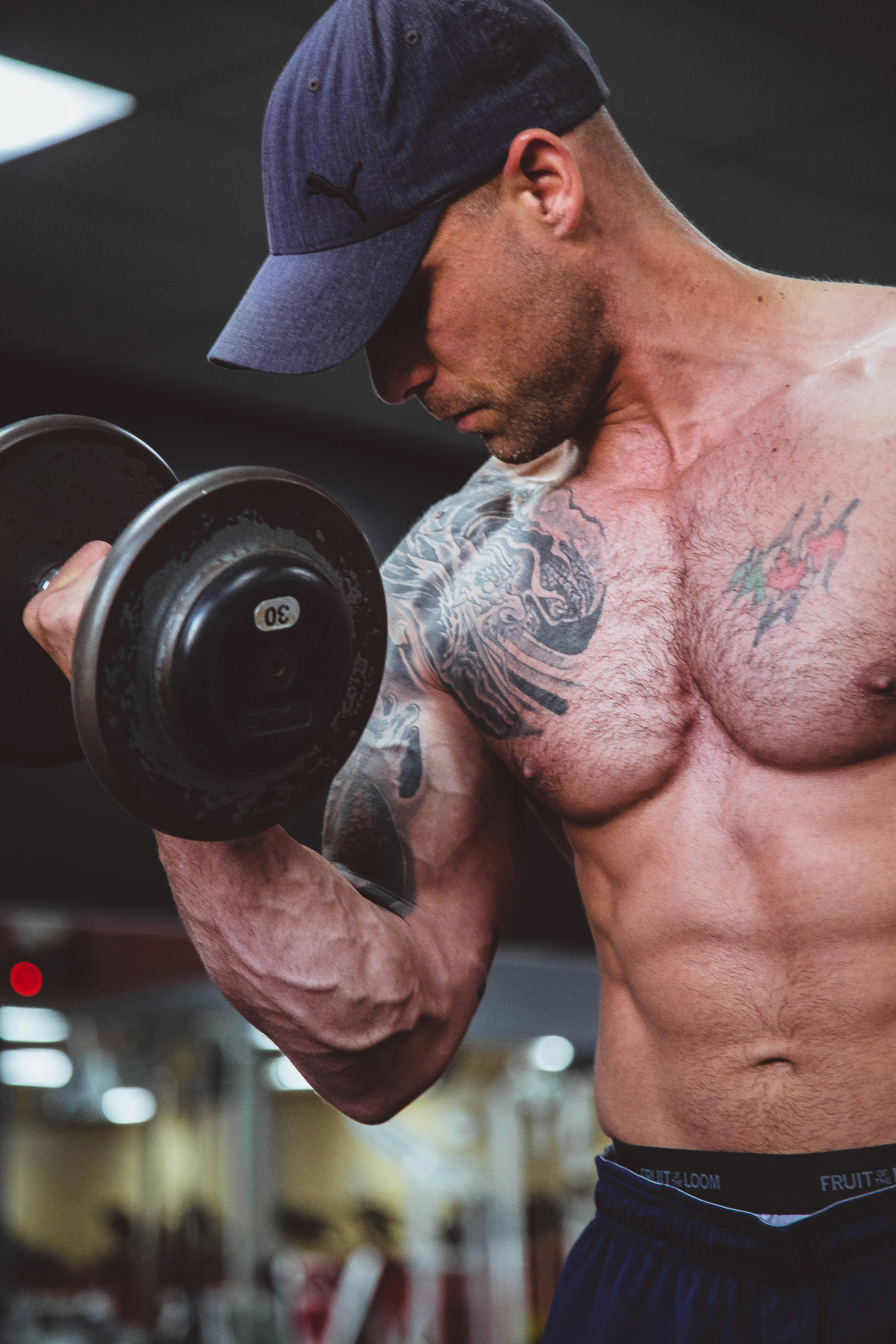7 Ways to Naturally Increase Testosterone Levels for Men Over 30
Testosterone levels gradually decline with age, often beginning in the early 30s. On average, men may experience a 1–2% decrease each year. While this is a natural part of aging, certain habits can accelerate the decline, while lifestyle improvements can help maintain healthy levels.

Low testosterone can contribute to fatigue, reduced muscle mass, and lower sex drive.
This article explores seven evidence-based ways to support healthy testosterone levels naturally.
Key Takeaways
- Testosterone levels gradually decline with age, but lifestyle choices strongly influence the rate.
- Nutrition, exercise, sleep, and stress management are essential for hormone balance.
- Certain supplements (vitamin D, zinc, magnesium, ashwagandha) can provide additional support.
- Men over 30 can benefit from these natural methods to maintain vitality and well-being.
1. Nutrition: Building Hormones Through Diet
What we eat directly influences hormone production. Diets rich in protein, healthy fats, vitamins, and minerals support testosterone production, while processed foods and excess sugar can suppress it.
Foods That Boost Testosterone
Some foods are particularly beneficial:
- Eggs – contain protein and cholesterol, both necessary for hormone synthesis.
- Fatty fish (e.g., salmon, sardines) – rich in omega-3 fatty acids that support cardiovascular and hormonal health.
- Leafy greens (e.g., spinach, kale) – excellent sources of magnesium, which plays a role in testosterone production.
- Lean proteins (chicken, turkey, legumes) – provide essential amino acids for muscle and hormone health.
Foods That May Lower Testosterone
Certain foods can negatively affect testosterone levels:
- Excess sugar → may contribute to insulin resistance and lower testosterone.
- Processed meats → linked with poorer metabolic and reproductive health.
- Foods high in phytoestrogens (e.g., large amounts of soy or flaxseed) → can mimic estrogen in the body, although moderate intake is generally safe.
The Role of Healthy Fats
Fats provide the raw materials for hormone synthesis. Diets too low in fat may reduce testosterone.
| Food | Nutrient | Benefit |
|---|---|---|
| Eggs | Protein, Cholesterol | Hormone building blocks |
| Salmon | Omega-3 Fatty Acids | Cardiovascular & testosterone support |
| Spinach | Magnesium | Supports testosterone production |
2. Key Supplements for Testosterone Support
While diet is primary, certain supplements can help maintain optimal testosterone levels, especially in men with deficiencies.
Vitamin D: The Sunshine Hormone
Vitamin D acts like a hormone in the body. Deficiency is common, particularly in regions with limited sun exposure, and has been linked with lower testosterone. Supplementation can help restore balance.
Zinc and Magnesium
- Zinc – essential for sperm quality and hormone production.
- Magnesium – supports enzyme function and hormone balance.
Together (sometimes sold as ZMA), they may support testosterone, particularly in deficient individuals.
Ashwagandha and Adaptogens
Ashwagandha, a traditional Ayurvedic herb, has been shown in some studies to lower cortisol and modestly increase testosterone. Ginseng is another adaptogen with potential benefits.
D-Aspartic Acid and Fenugreek
- D-Aspartic Acid (DAA) – may stimulate hormones that signal the testes to produce more testosterone.
- Fenugreek – can help maintain testosterone levels by reducing conversion to estrogen.
Supplements work best when combined with healthy diet, exercise, and proper sleep.
3. Strength Training: Exercise for Hormonal Health
Strength training is one of the most effective natural methods for boosting testosterone.
Compound Movements
Exercises that engage multiple muscle groups provide the greatest hormonal response:
- Squats
- Deadlifts
- Bench presses
“Compound exercises such as squats and deadlifts are among the most effective for stimulating testosterone production.”

Training Frequency and Recovery
Moderate to high intensity training several times per week supports testosterone. Overtraining, however, can elevate cortisol and suppress hormones. Balance is key.
Nutrition and Recovery
Adequate rest, sleep, and post-workout meals with protein and carbohydrates are essential for recovery and hormone balance.
4. Sleep: The Foundation of Hormonal Balance
Sleep is when the body produces and regulates most hormones, including testosterone.
The Link Between Sleep and Testosterone
Studies consistently show that insufficient or poor-quality sleep lowers testosterone. Even one week of sleep restriction can cause measurable declines.
Optimizing Sleep
- Maintain a consistent sleep schedule.
- Keep the bedroom dark, cool, and quiet.
- Limit screen exposure before bed.
“A dark, quiet room is essential for quality sleep. Blackout curtains or earplugs may help.”
Addressing Sleep Disorders
Conditions such as sleep apnea significantly reduce testosterone. If you experience loud snoring, frequent awakenings, or daytime fatigue, seek medical evaluation.
| Sleep Disorder | Impact on Testosterone | Management |
|---|---|---|
| Sleep Apnea | Reduced testosterone | CPAP therapy, weight management |
| Insomnia | Disrupted hormone cycles | Cognitive behavioral therapy, good sleep hygiene |
5. Stress Management: Lowering Cortisol to Protect Testosterone
Chronic stress increases cortisol, which can suppress testosterone production.
The Cortisol-Testosterone Connection
High cortisol disrupts the signals that regulate testosterone. Managing stress helps protect hormone levels.
Effective Stress-Reduction Methods
- Mindfulness and meditation
- Deep breathing exercises
- Regular physical activity (walking, yoga)
- Spending time outdoors
These practices reduce anxiety, improve resilience, and support hormone balance.
6. Environmental and Lifestyle Factors
Daily environment also influences hormone health.
Reducing Endocrine Disruptors
Chemicals like BPA and phthalates, found in plastics and personal products, may interfere with hormones. Choose BPA-free bottles and natural cleaning products where possible.
Digital Habits
Excessive screen time, especially late at night, disrupts sleep and indirectly lowers testosterone. Limiting blue light exposure in the evening is beneficial.
Creating a Hormone-Friendly Home
Good ventilation, safe household products, and a clean environment all contribute to better overall and hormonal health.
7. Intermittent Fasting and Smart Eating Patterns
Intermittent fasting (IF) alternates eating and fasting periods. Some studies suggest it improves insulin sensitivity, reduces inflammation, and supports hormone regulation.
How Fasting Affects Hormones
Fasting can increase human growth hormone (HGH), which indirectly benefits testosterone balance.
Popular Eating Windows
| Eating Window | Fasting Period | Potential Benefits |
|---|---|---|
| 8 hours | 16 hours | Better insulin sensitivity, fat loss, possible testosterone support |
| 10 hours | 14 hours | Improved metabolism and hormone regulation |
Combining IF With Other Strategies
For best results, pair intermittent fasting with strength training, balanced diet, quality sleep, and stress management.
Conclusion: A Holistic Plan for Men Over 30
Maintaining testosterone after 30 requires a comprehensive lifestyle approach:
- Nutrition – Emphasize whole foods, protein, healthy fats, and micronutrient-rich vegetables.
- Exercise – Include both strength and cardio with sufficient recovery.
- Sleep – Aim for 7–9 hours of quality rest.
- Stress management – Incorporate relaxation practices daily.
- Supplements – Consider vitamin D, zinc, magnesium, or ashwagandha if appropriate.
- Environment – Minimize endocrine disruptors and support healthy routines.
- Eating patterns – Intermittent fasting may provide additional benefits.
By combining these strategies, men over 30 can support healthy testosterone levels, improve vitality, and enhance overall quality of life.